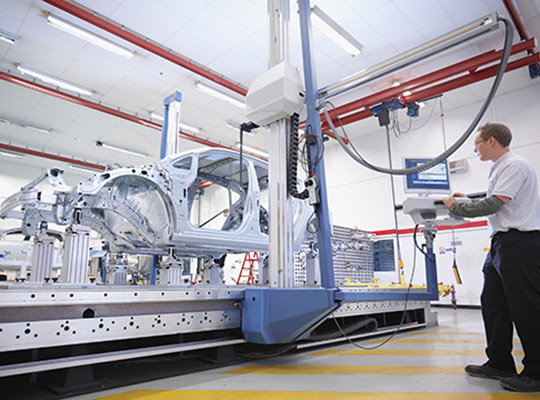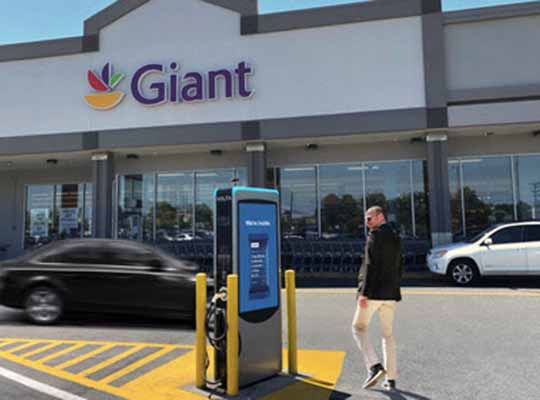
In April this year, Indian firm Ola Electric announced plans to set up a nationwide charging network for e-scooters set to roll out of its huge factory in Bengaluru this summer. It will eventually create more than 100,000 charging points across 400 cities. In the first year, Ola Electric will set up more than 5,000 charging points across 100 Indian cities. Ola Electric is representative of the huge boom in e-vehicles that is expected soon in India.
Tesla, one of the best-known companies in the clean energy space has incorporated its Indian subsidiary in Bengaluru. Enel X, the Enel Group’s advanced energy solutions firm, has entered into a JV with Sterling and Wilson Pvt Ltd to boost the development of electric vehicle charging infrastructure across India. Considering the Indian government’s ambitious plan to have 100 percent of all vehicles as electric by 2030, there is huge potential for the electric mobility segment. An independent study by the CEEW Centre for Energy Finance (CEEW-CEF) estimates the electric vehicle market in India to be a US$206 billion opportunity by 2030.
Products and Production go Digital
The transition to electric mobility – together with the development of connected and autonomous vehicles – requires huge changes in the economy and society. On one hand, this means legislative changes and a new tax policy that creates incentives for the electrification of fleets and more powerfully promotes the private purchase of e-cars, e-scooters, etc. On the other hand, manufacturers’ supply chains will have to keep pace with new production targets.
Vehicle manufacturing is already being increasingly automated with AI, Cloud, Big Data and IoT being used in the digitalisation of the production process. Innovation is the pivot around which organisations and their trading partners will be able to design seamless and smart supply chain processes. Resilience, flexibility and efficiency are current operating principles that every organisation must race to embrace in order to successfully deal with disruptions such as those triggered by Covid-19. And this can only be achieved through use of data-driven analysis and state-of-the-art technology. Or else major challenges already faced by e-vehicle manufacturers, such as the unpredictable nature of supply and demand for raw materials, could present a threat to their very survival.
New key Raw Materials Create New Complexities
For a long time, iron and steel were the most important raw materials in car manufacturing. Later, light metals, mainly aluminium, were added. Today, there is an oversupply and a strong price war in the world markets for these raw materials. So, buying these metals is usually not difficult for car manufacturers. Sometimes they also have supply relationships that have been established over a very long time. Due to the oversupply, failures of individual producers or local supply issues are easily solvable.
Electric cars without engine blocks and complex multi-speed transmissions require fewer raw materials, but their batteries are a new bottleneck for production. This is especially true of the raw material lithium, which is used in modern batteries. The situation in India is completely different from the steel market. Global demand has exploded in recent years, while lithium production is spread over just a few locations.
As global supply chains are so interlinked today, any impact in any corner of the mineral producing countries can have a huge impact on the growth of the electric vehicle market in any or all markets globally. The recent case of one of the world’s largest container ships, Evergreen, getting stuck in the Suez Canal, proved how susceptible global trade is to disruption – even in the aftermath of the actual event. Such acute events come up against a global trade in goods that is struggling with deep structural issue. This means that manufacturers must rethink and optimise their supply chains and, above all, work on developing their resilience. During the Covid-19 pandemic, India has seen examples from sectors like pharmaceuticals and the auto component industry at risk of being dependent on a single country for sourcing of raw materials. This has lessons for the electric vehicle market too.
The Supply Chain of the 21st century
Automakers around the world have been expanding their production facilities and supply chains for some time – in that sense, it’s not an entirely new challenge, but it is being exacerbated in the wake of the e-mobility revolution. This is creating new and complex digital ecosystems as they work with more suppliers, traditional and new. Innovation and collaboration are driven by supply chains that increasingly connect not only suppliers, but also customers, third-party logistics companies and other value chain partners. Companies have used these evolving and increasingly digital supply chains to drive agility, flexibility and responsiveness. But scale and complexity have created a structural vulnerability that has been fully exposed by the pandemic. This can only be addressed through a more resilient approach.
To respond quickly and effectively regardless of these circumstances, information must be able to flow smoothly and securely in many directions across the organisation, as well as between employees, business departments and across the extended business network. To achieve this, organisations need to accelerate their digital transformation and integrate data analytics, transactional content and cybersecurity, while providing robust activity reporting, content creation and receiving capabilities and dashboards. In addition, the use of AI and analytics is now a key enabler for automotive companies as they seek to better align operations and production to meet the needs of their customers. These innovations also give them the flexibility they need to respond to unforeseen events, quickly change their business model and adapt to new demands.
Ethical issues are also in focus
Customers today want to know under what conditions products were manufactured and where the raw materials were sourced. Lithium mining in South America in particular has an enormous impact on the environment due to the huge volumes of water involved in the extraction process. In addition to economic considerations, companies must work hard to avoid inflicting hardship on local communities or negatively impacting people’s health and wellbeing. Transparency in supply chains is essential to fight against labour exploitation and environmental pollution. This is no longer done for altruistic reasons: Rather, consumers are demanding ethical behaviour from companies, which in turn is becoming a serious competitive differentiator.
The characteristics of a modern supply chain
A modern supply chain must embrace innovations such as the cloud, IoT and Big Data to be connected at all levels of production and across all functional areas, be it in manufacturing plants, offices or logistical activities. This enables collaboration with stakeholders across the ecosystem, but also provides a secure way to share design and production information between individual plants and partners.
Ultimately, the combination of IoT, AI and analytics will provide automotive companies with end-to-end access to intelligent supply chain data to measure and analyse all internal and external activities. This will not only ensure an efficient and resilient supply of raw materials and get products out to customers on time, it will also provide companies with maximum transparency into working and environmental conditions along their supply chains













